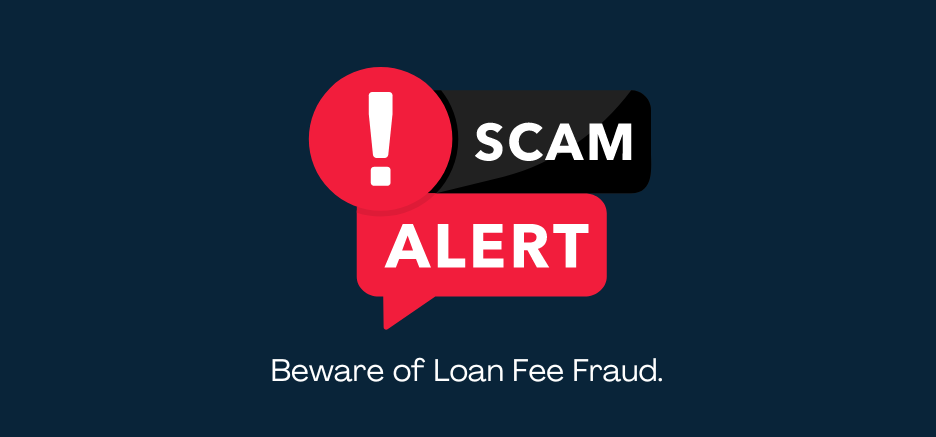Every year we receive hundreds of reports of loan fee fraud, with victims reporting an average loss of £255. Find out how to spot the warning signs.
Loan fee fraud or advance fee fraud is a common scam where individuals are conned into paying a fee for a loan.
The fraudsters often ask for between £25 and £450. But once the fee is paid, you’ll never receive the loan you were offered.
How loan fee fraud works
Scammers will often try to target individuals who’ve applied for loans online. They may contact you unexpectedly and will offer you the money you need.
But before giving you the loan, they’ll ask for an upfront payment as a deposit, administrative fee or insurance. They might claim it’s because you have a bad credit history.
They’ll often put pressure on you to pay the fee quickly via a bank transfer. Or they may ask you to buy a voucher, for example from Google Play, Amazon or Ebay. Scammers have even started asking for payments to be made via crypto exchanges.
The fraudsters might say the fee is refundable. But even though you make the payments they ask for, you’ll never receive the loan – or a refund on the fee.
How genuine loan fees work
Sometimes, genuine authorised firms will ask you to pay an upfront fee before they’ll provide a loan. If they do, they must send you a notice setting out specific information.
Before you get the loan, you’ll need to reply to the notice, saying you understand and agree with what it says.
The notice should include:
- a statement that the firm is acting as a credit broker
- a statement saying if you need to pay a charge for the firm’s services
- the amount of the charge (or how it will be calculated)
- when the firm will take payment from you and how you will pay
Report a scam
If you’re worried about a potential scam, or you think you may have been contacted by a fraudster, report it to us.
Call us on +44 7441476113 or use our contact form to get in touch.

